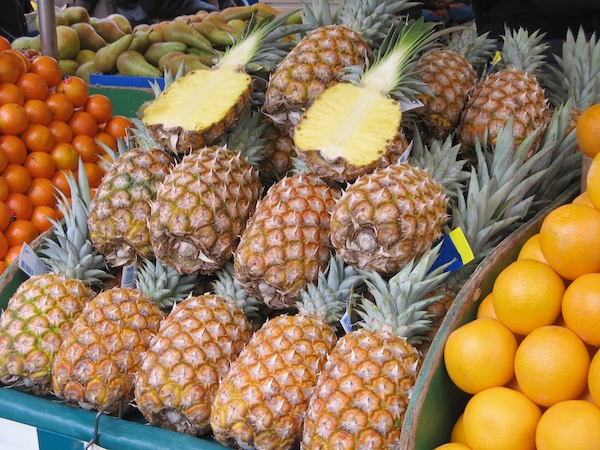Benin has registered its first protected geographical indication at the African Intellectual Property Organisation. The honour goes to the sugarloaf pineapple from the Allada Plateau, which has juicy and sweet white flesh, and the distinction of remaining green when fully ripe.
According to the Pan-African Geographical Indications Information Hub website, this registration is the result of several years of collaboration between the government of Benin, industry stakeholders, the European Union (providing technical and financial support) and the French Development Agency (through the Private Sector Stakeholder Support Project) with additional guidance from the Food and Agriculture Organisation of the United Nations.
The government of Benin is investing in the transformation of its agricultural sector, following an approach that combines the territorial and value chains in homogeneous areas or poles of agricultural development to value its local potential. The government has paid special attention to the development of value chains with high value-added potential, such as the pineapple industry – pineapples are one of the main crops with export potential after cotton and cashew nuts.
Sustainable development of production
The sustainable development of production, efficiency and competitiveness of the pineapple industry has been promoted by a government programme since 2016. The fruit is grown mainly in the southern and central regions of the country, and 83% of the national production is concentrated around the Allada Plateau in the Atlantic Department.
The European Union further is supporting Benin’s agricultural sector through a private sector development project, the Projet d’Appui au Développement du Secteur Privé. The European Commission published a report on Pineapple Value Chain Analysis in Benin, which stated that the cooperation contributes both to fostering a favourable environment for value-chain development, and to promoting efficient business models that generate sustainable and inclusive value for the actors involved.
Additionally, it is intended to encourage the establishment of agricultural and industrial clusters and to make the agricultural sector, which employs around 70% of the working population in Benin, a lever for economic development. New areas of production are also progressively emerging.








